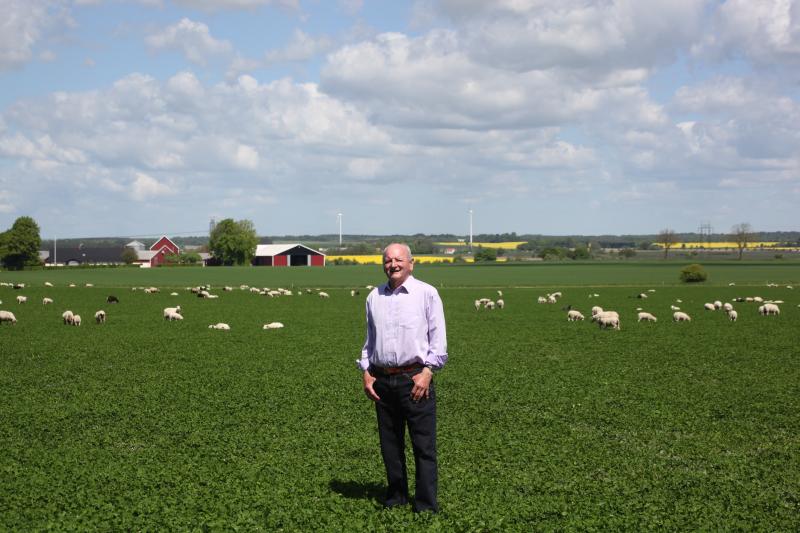
A Welsh sheep breeder has made changes to his artificial insemination programme to improve conception rates in his performance-recorded flock following a visit to Denmark and Sweden.
Alwyn Phillips, of Penygelli Farm, near Caernarfon, had used cervical insemination in combination with fresh semen on his flock of performance-recorded Texels and Poll Dorsets since 1983.
But, following lessons learned during his visit to Denmark and Sweden, two countries which achieve higher conception rates using frozen semen, he is now adopting this approach.
Mr Phillips was awarded a bursary by Farming Connect Management Exchange to study how techniques used in these Scandinavian countries could be implemented in Wales to enhance its own cervical AI programme.
He says it is more important than ever that farmers and foresters learn new skills to make their businesses more efficient as Wales prepares for changes to the subsidy system in the next five years.
He chose Denmark and Sweden for his study because Scandinavian countries have become world leaders in the cervical insemination of sheep using frozen semen as laparoscopic AI is prohibited.
Mr Phillips travelled nearly 2000 miles in six days, visiting six farms.
These farms achieve 50-70% conception rates using frozen semen – in UK trials conception rates have varied from 5-30%.
'Huge opportunity'
“Scandinavian countries have developed a method of cervical insemination of sheep using frozen semen out of necessity,” Mr Phillips said.
“If their success could be mirrored in Wales, it presents a huge opportunity to improve the national flock,” he insists.
“This could benefit producer and processor alike by reducing the number of carcasses that fail to achieve the desired grade in the EUROP grid, thus improving farm profitability and lowering the cost of processing as well as reducing waste in the plant.
He added: “Cervical insemination using frozen semen gives us an opportunity to rapidly improve the Welsh sheep industry, make our farming business more viable and more competitive in order to face the challenges coming our way in the next few years.’’
'Superior genetics'
In Wales, most ewes in AI breeding programmes are inseminated laparoscopically but this is a high cost and invasive procedure with associated risks.
Mr Phillips says his visit to Denmark and Sweden had demonstrated just how successful cervical insemination using frozen semen can be.
“AI offers access to superior genetics, reduces risks of importing diseases and a wider choice of proven rams. It allows the purchase of semen from rams to improve the individual ewe’s weaker EBVs, while avoiding risk of in-breeding.’’
It could be cheaper, he suggests, to buy semen from proven rams than to invest in a stock ram which may not improve the flock and, in some cases, might have a brief working life.
Mr Phillips believes Welsh sheep farmers could benefit from insemination training programmes similar to those offered to dairy farmers.
“Once trained, the breeder can have a flask on farm holding semen from different proven rams to be used on selected ewes,’’ he says.
